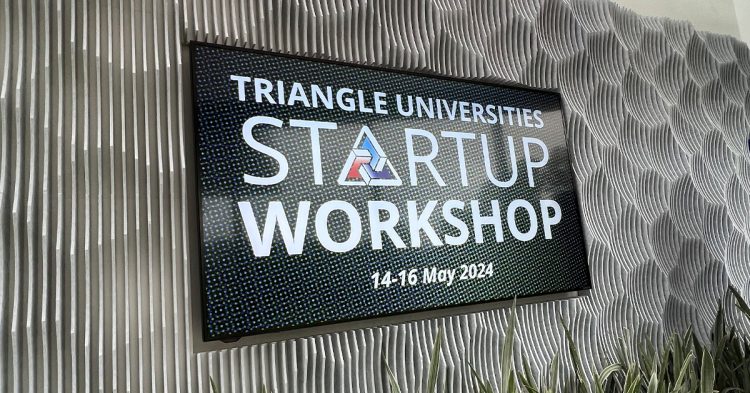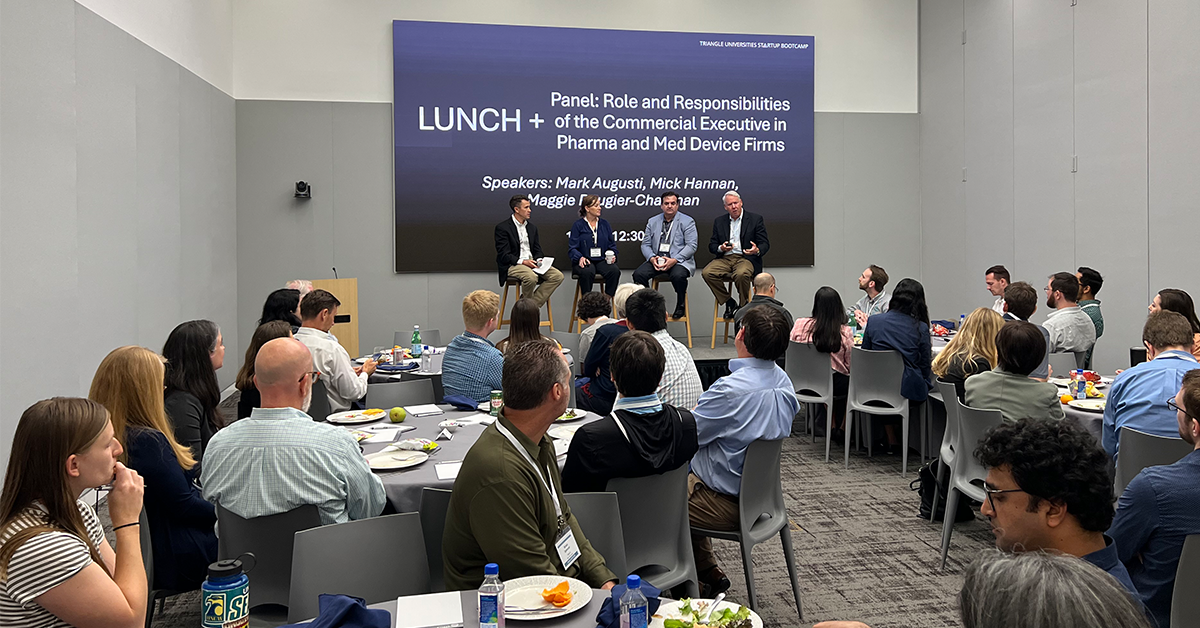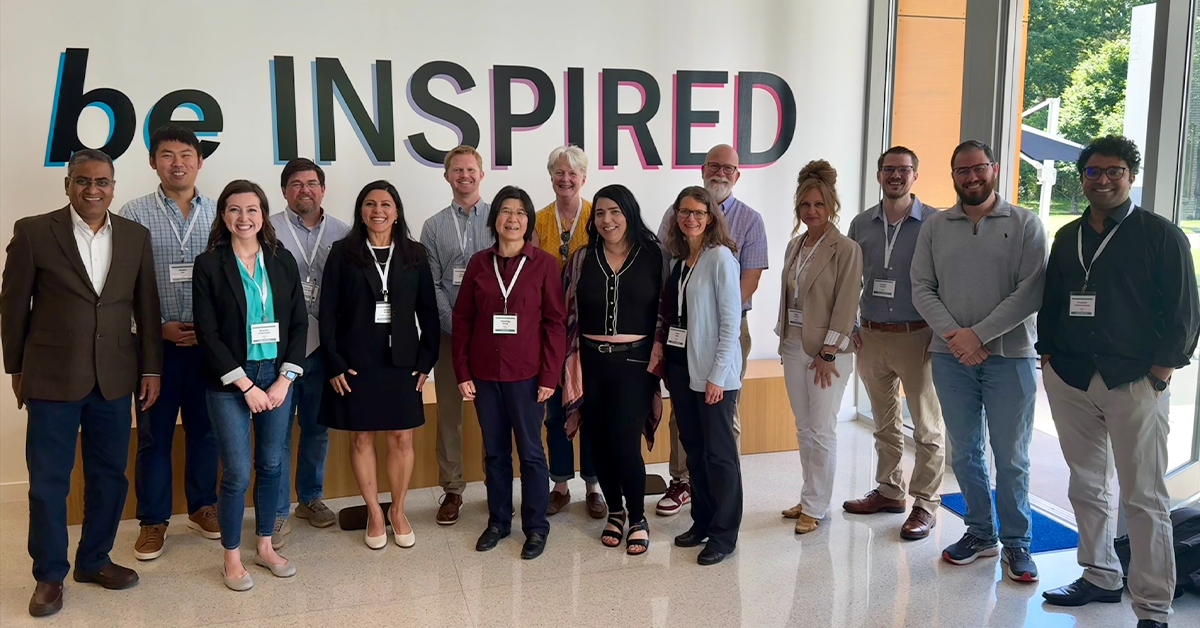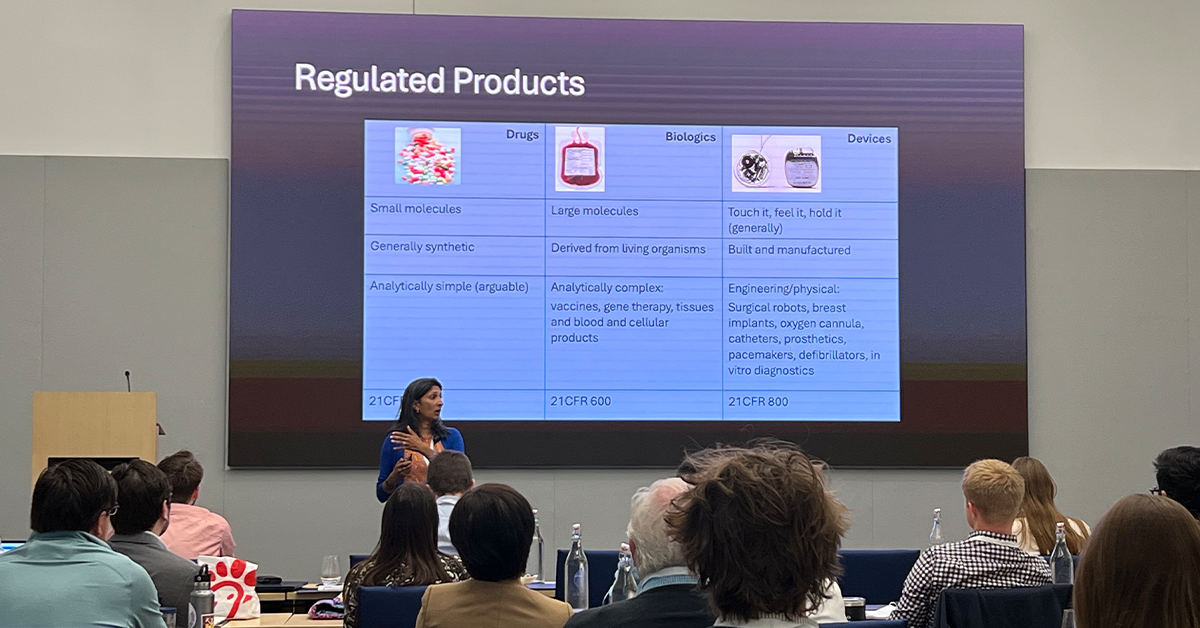Triangle Universities Startup Workshop: Academic Entrepreneurs Get an Intensive Course in Venture

by Fedor Kossakovski
“I don’t want to say life-changing, but pretty close to it.”
That was Shamitha Shetty’s takeaway from the inaugural Triangle Universities Startup Workshop, held in mid-May. Shetty, a Ph.D. student in the Duke University Department of Biomedical Engineering, was beaming at the reception concluding the three-day intensive course, mulling over all the guidance she received on how to take her immunotherapy platform technology out of the lab and, hopefully, into a startup.
“I feel like now I’m going back with an action plan of the things that I need to do,” team lead Shetty said.
“This workshop was a great opportunity to bring the three universities together for an impactful event. Given the number of postdocs and graduate students here, it’s exciting to know we’re guiding and inspiring the next generation of biotech entrepreneurs to commercialize university innovations. So I’m really encouraged,” said organizer Don Rose, Entrepreneur-in-Residence of Alexandria Real Estate Equities, Inc. and Alexandria Venture Investments, which supported and participated in many of the sessions. The event was hosted at the Apella by Alexandria event space on the Alexandria Center® for Advanced Technologies mega campus in Research Triangle Park.
The idea for the Triangle Universities Startup Workshop grew out of the collaboration of the Triangle Venture Day crew, led at the academic institutions by Jeff Welch of Duke New Ventures, Mireya McKee of UNC-Chapel Hill KickStart Venture Services, and Tim Martin of the NC State University Office of Research Commercialization.
The organizers selected innovators from their universities and assembled them into cross-campus teams, assigned them an experienced mentor, and challenged them to apply learnings from in-depth expert lectures to hands-on exercises based around their own technology spinouts.
The schedule was packed. The mornings and early afternoons featured more than a dozen industry veterans sharing deep dives into topics such as how to engage with the FDA and how to approach marketing your product inside the healthcare industry. Lunches each had a panel showcasing experiences from company executives and venture capitalists. Closing out each day were afternoon sessions where participants broke into their assigned groups and worked through exercises like creating a Target Product Profile, culminating in short pitch presentations at the end of the workshop.

This first event was focused on helping inventors specifically with therapeutic or medical device technologies. Many academic inventors come to their new ventures offices with aspirations of spinning up a startup, and organizer Martin says there’s a lot to cover – especially in highly regulated markets such as healthcare.
“We try to encapsulate a lot of it, but it’s hard to get all of that across during a one-hour meeting with them sporadically,” Martin said.
The workshop came precisely at the right time to prepare participants for the intense process of growing a startup.
“The workshop was like obtaining a concentrated degree in startup,” said team member Ronit Freeman, Associate Professor at the UNC-Chapel Hill Department of Applied Physical Sciences who designs biomaterials platforms. “It was definitely good timing since I have a few translational projects in my lab, and the workshop enabled me to learn what is involved in getting startups off the ground within an academic setting.”
“Having each institution select innovators with exciting projects created a highly engaged and dynamic cohort,” said organizer McKee. “The interaction and collaboration between participants from different universities was inspiring and bodes well for future cross-campus collaborations.”

Seeing both the big picture and the details of startup development is a tricky exercise that requires support and guidance.
“I actually worked in a hospital and was involved in many clinical trials,” said team member Li Lan, Associate Professor in the Duke University Department of Molecular Genetics & Microbiology who explores how RNA affects DNA repairs in cancer. “But when you were in a trial, you never saw the beginning part, like drug discovery. And when I’m working on the science, I forget that you need to think about the future, from mechanisms of action to application, then from the trial designing to the data analysis. This is putting everything together from the beginning to the end of the path of a startup company.”
This structured walkthrough of the startup process – from spinning out of the universities to hitting the market with a product – was implemented in a unique way: backwards, from the end to the beginning.
“When you don’t know where you’re going, it’s easy to meander through product and company development and accidentally go in circles or fall off a cliff,” said organizer Welch. “Encouraging our academic entrepreneurs to ‘keep the end in mind’ from the very beginning will hopefully help them run a focused and efficient therapeutic development program that is rewarded by investors and ultimately the market.”
Navigating a commercialization path is easier when you have knowledgeable, engaged guidance along the way – and the speakers and mentors at this event were of the highest caliber.
“The speakers spoke from their experience about topics that will be important for our next steps, including the regulatory process, finding the right people for a successful startup, and how equity is handled,” said team lead Joseph Tracy, University Faculty Scholar and Professor in the NC State University Department of Materials Science and Engineering who builds novel nanomaterials. “The Triangle Universities Startup Workshop was extremely helpful and informative for my team of researchers interested in developing and commercializing a new cardiac device.”
The speakers also enjoyed the event and were thrilled to see this type of event happening in the Triangle.
“It was a lot of fun to be able to integrate everything that I’ve learned in 20 plus years of being in medtech and share it with people who don’t have to take another 20 years to learn it,” said speaker Sonna Raman, former CEO of Raleigh-based NuPulseCV who now runs her own medtech consulting firm, Third Floor Consulting.

At the reception wrapping up the event, there was a palpable buzz of excitement as team participants kept chatting about their next steps. For the organizers, the next step is continuing to support these entrepreneurial academics, as well as make the Triangle University Startup Workshop a recurring event with a rotating technology type focus.
In the end, creating more cross-campus events like this that engage local ecosystem players also builds a stronger community of entrepreneurship in North Carolina, a need mentioned by participants, speakers, and organizers alike.
“If we want talent to stay here, then the ecosystem has to be strong enough to support that talent in finding work” said speaker Raman. “So, this is a great start. And the more we do this, the more companies will want to build and stay here.”